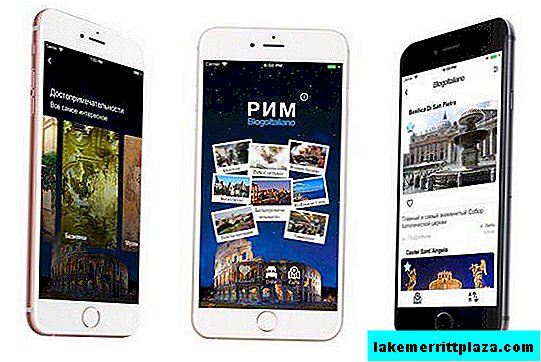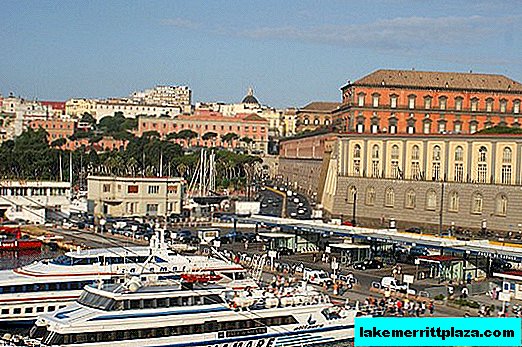The distance between Verona (Verona) to Venice (Venezia) is 120 kilometers. It is cheaper, faster and more convenient to travel by train, but you can extend the trip and use a bus or a rented car. Consider in detail the cost of each method.
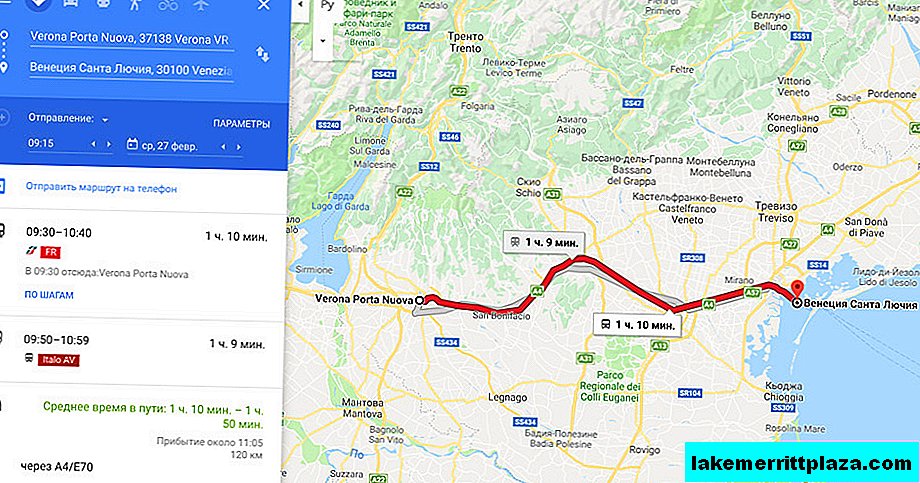
By train
From Verona Central Station Porta Nuova to Venice, high-speed trains run Italotreno and Trenitalia. Travel time is 1 hour 10 minutes, trains arrive at the Santa Lucia station (Venezia Santa Lucia) - this is the last place on land in Venice, which can be reached by public transport. To the historic center, Piazza San Marco, you need to take a vaporetto, water taxi, or walk.
Typically, a train ticket costs 20 euros in the second class and 30 euros in the first (Prima).

If you plan ahead and buy tickets for a few months, you can find the first class for the offer for 18.90 euros, and the second for 9.90 or 12.90.
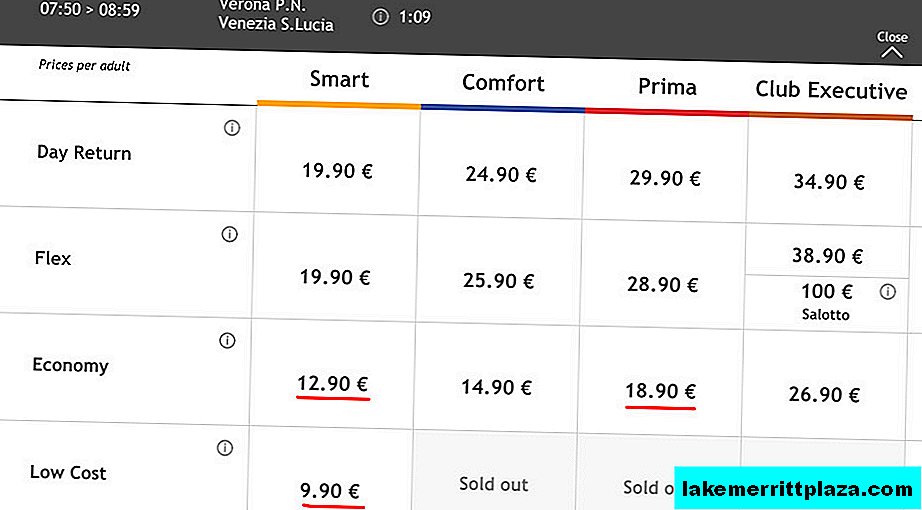
When traveling to Venice for a day, I recommend leaving Verona by morning train at 07:50.
You can return from Venice to Verona by train at 15:01, 17:01 or 20:01. I would check out at 17:01 in order to have time to return to dinner, which traditionally starts in all restaurants in Italy around 19:00.

- You will find the instruction useful: how to get from the airport to the center of Verona
By car
By car from Verona, Venice can be reached on the A4 toll road in about 2 hours. The cost of the road is 8.10 euros one way plus fuel and parking. The parking closest to the center of Venice is called Garage San Marco Venezia, prepare 32 euros per day and book it in advance, as there is a full house there. On the way, you can call in to Vicenza (Vicenza) and Padova (Padova) - very beautiful cities.
By bus
A ticket for a Flixbus bus from Verona to Venice costs an average of about 10 euros, and you can even manage to buy it for 5 euros in advance. The bus leaves from Porta Nuova bus station and arrives after 1 hour 25 minutes on the island of Tronchetto near the central station of Venice.
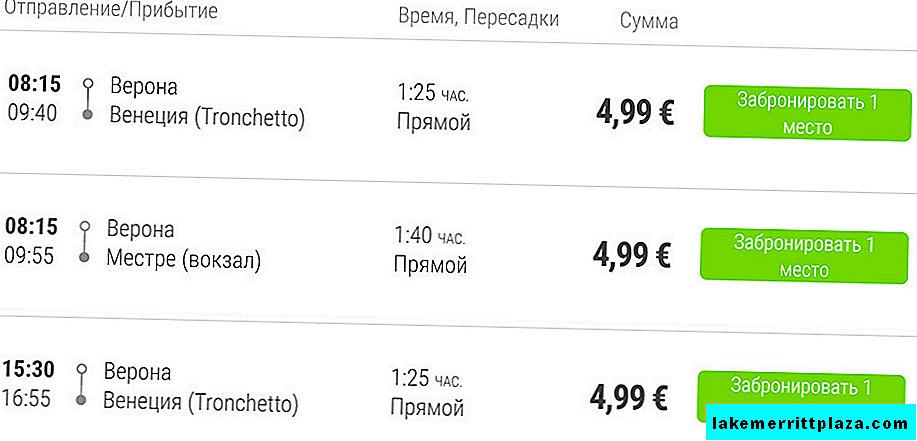
By the same bus you can also get to the Mestre district, where more budget hotels are located.
I hope the instruction came in handy. If you need advice, or if you have questions about route planning, I will be happy to answer in the comments.


